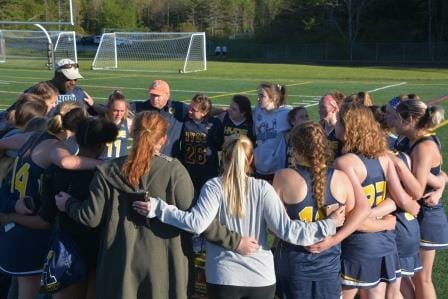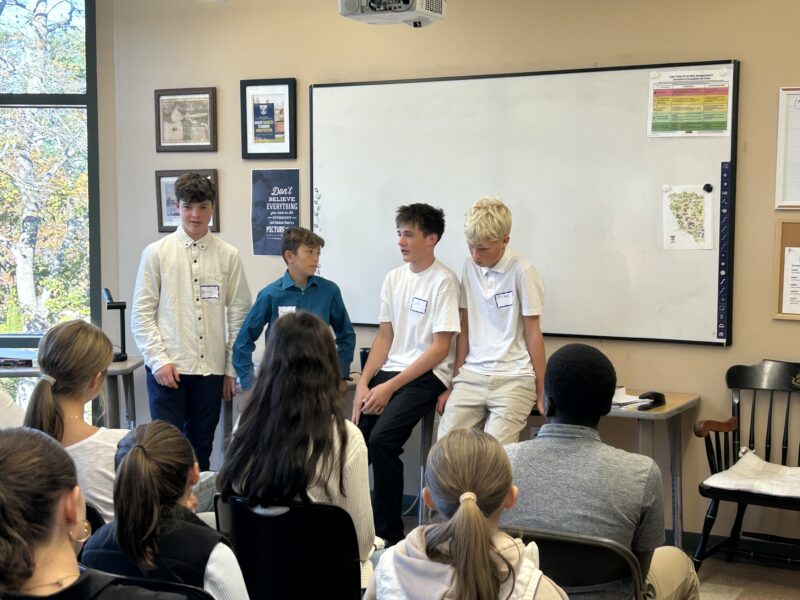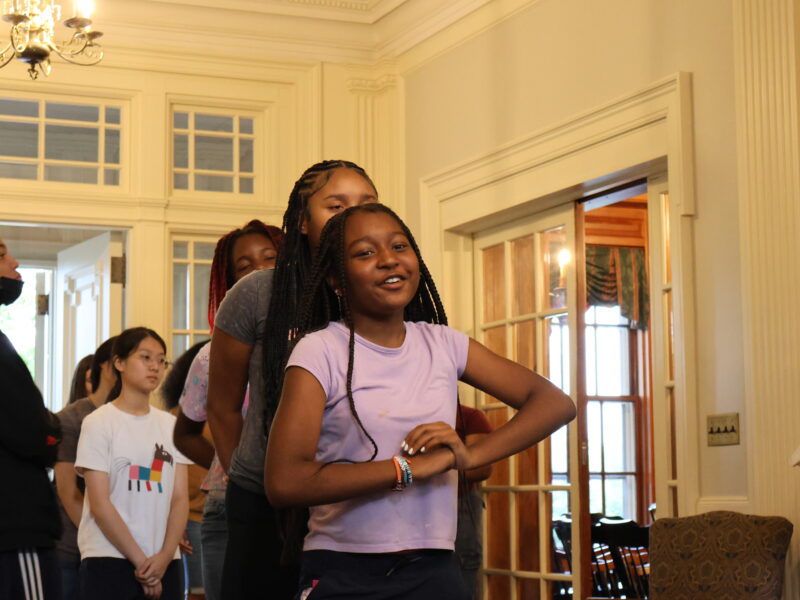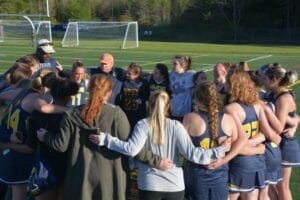
The end game of the Discovery Process is easy enough to articulate: An uplifting school culture that inspires students and teachers to strive to be the best versions of their individual and collective selves.
Admittedly, that goal is easier to explain than achieve.
In one of our training videos, Jared Shade (Superintendent of the Upper Dauphin, PA Schools) makes a great point when he says, “It’s not a program; It’s a culture.”
As proud as our team is about the efforts we put forth to write the 134 lessons comprising the Discovery Process program, we all agree on one thing: They are not T.H.E. Program. The essence of the program lies in the hearts of its participants. It comes down to what we pay attention to, how we feel about our school, and what we actually do there.
When we began working on this initiative two years ago, we talked a fair amount about “non-negotiables” — i.e., steps and measures a school must take in order to be successful. (In the spirit of truth being our primary guide — the title of one of our modules! — we even discussed the idea of refusing to sell the program to schools that might opt not to honor the non-negotiables we had been adding to our list.) Then we encountered the varied and diverse circumstances surrounding our nation’s schools. For example, some:
- Are so large that they have separate grades in separate buildings;
- Don’t have a gym or a stage;
- Lack access to playing fields;
- Already subscribe to other programs with different schedules or sets of expectations.
So, we pivoted from the hard-and-fast world of non-negotiables to perhaps a more flexible standard of highly recommended measures and practices proven to result in optimal outcomes. This led me to conversations with the leaders of other Discovery Process schools where I asked, “What are the norms/practices/traditions/expectations that have fueled the strongest school cultures you have experienced during your time with the Discovery Process?” Here a Top 10 List of answers:
1. The Mixed Age Homeroom OR Discovery Group
– Once the students buy in to this idea, the younger kids look up to (rather than fear) the older kids and the older kids act like role models and Big Brothers/Sisters. Over time, a family-type atmosphere forms.
– Exclusionary social cliques fade from prominence on the social scene.
2. The Daily Check-In (The first module in the program)
– Fosters caring, support, and togetherness
– Puts kids together from different backgrounds and circumstances and enables them to start the day off on a good foot. One superintendent said, “Sad to say, but for some of our kids, the Daily Check-In is the safest, sanest part of their day, allowing them to focus on school as opposed to what might be happening — or not happening — at home.”
3. Keeping an eye out for the “teachable moment” and pointing it out when it happens
– Great schools watch for and capitalize on teachable moments. It’s actually pretty simple: When a student acts in a manner consistent with the common language or principles of the Discovery Process, we draw attention to it.
4. Everybody tries and does everything
– Sports and performing arts are not just for the kids that are already good at them. We all give it a try.
– Cliques vanish from the scene as everybody eventually accepts that it is not uncool to try something and look bad.
5. The Debrief (The second module in the program)
– While a module on this topic explores this practice in detail, it boils down to asking “How did we do?” at frequent intervals.
6. “An advocate for every child”
– No student slips through the cracks
– One school distributes a survey each spring designed to measure connectedness. Students who fall below a certain score receive extra focused attention from designated teachers.
7. Keep Discovery Groups together throughout the students’ time at the school.
– Both the Halifax (PA) and Upper Dauphin (PA) keep their groups together to ensure continuity of relationships. Group alumni reunions — even marriages! — are not uncommon.
– Both schools report that this practice further ensures that all students will be known and feel a sense of belonging.
8. Student Jobs Program (Typically, once or twice a month.)
– On the one hand, probably the two biggest points of initial resistance from students (and parents) are the mixed aged Discovery Groups and student jobs program.
– On the other, visitors to Discovery Process schools invariably comment on the lack of litter and graffiti. Simply put, when students participate in maintaining the cleanliness and order of their learning spaces, they are far less likely to desecrate them.
9. Action-Reflection Cycle (Module #10)
– A simple way to explain, understand, and actualize the process of personal growth. And any student, teacher, or parent can do it.
10. When in doubt, bet on the truth.
– There’s a reason why three of the ten words – Integrity, Truth, and Conscience – comprising the common language component of the Discovery Process address truthfulness.
– Some Discovery Process schools even have a sign on the wall that reads: “The truth will set you free, but first it will make you miserable.” Not a requirement, but if your school wants one, let me know!
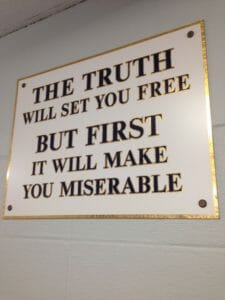
Onward, Malcolm Gauld
